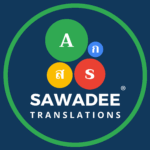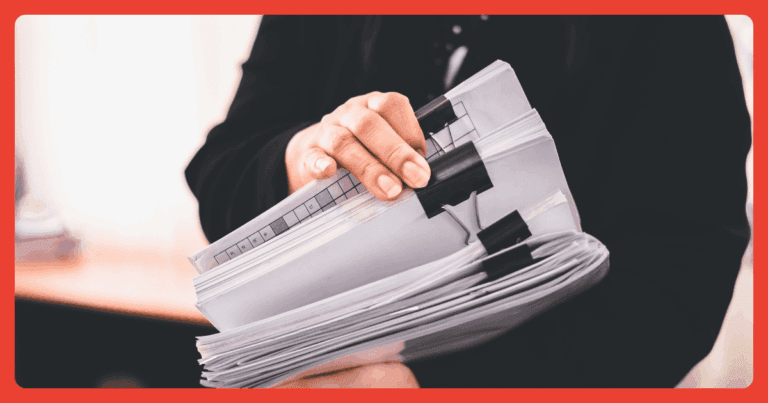
Table of Contents
If you’re preparing documents for official use in Thailand whether for a marriage registration, work permit, property purchase, or an embassy submission, you’ve undoubtedly encountered the terms “certified translation” and “legalized translation.”
While they sound similar, they represent two distinct and crucial stages of document authentication. Understanding the difference is the most important first step to ensuring your paperwork is accepted. Getting it wrong can lead to rejected applications, wasted money, and significant delays.
This guide breaks down exactly what each term means, when you need them, and how the processes work.
Part 1: What Is a Certified Translation?
Think of a certified translation as a professional guarantee.
A certified translation is a document that has been translated by a qualified, professional translator who then attests to its accuracy. The translator or their agency provides a signed declaration, often called a “Statement of Accuracy” or “Translator’s Declaration,” stating that the translation is a complete and true representation of the original text.
In Thailand, this certification is typically accompanied by the official stamp or seal of the translator or translation company.
Key Characteristics:
- Purpose: To ensure the linguistic accuracy of a translation.
- Provided By: A qualified translator or a registered translation agency.
- What You Get: The translated document along with a signed certificate of accuracy and an official seal.
When is a Certified Translation Sufficient?
A certified translation is often all you need when submitting documents to non-governmental or less formal administrative bodies. Common examples include:
- Applying for a job with a private Thai company.
- Submitting foreign educational diplomas for internal HR purposes.
- Applying for a Thai driver’s license.
- Opening a personal bank account.
- Internal business contracts and correspondence.
👉 See the some of the top documents that require certified translation in Thailand.

Need Certified or Legalized Translations for MFA or Embassy Use?
Our native translators and legalization team handle everything for you.
Get in Touch >
Part 2: What Is a Legalized Translation?
Think of legalization as the government’s official stamp of approval.
A legalized translation takes the process one critical step further. After a document is translated and certified, it is then submitted to a government authority. In Thailand, this is the Legalization Division of the Department of Consular Affairs (part of the Ministry of Foreign Affairs, or MFA).
The MFA checks the translation’s accuracy and verifies that the signature and seal of the certified translator. This act of verification is what “legalizes” the document, making it officially recognized for high-stakes legal and international matters.
Key Characteristics:
- Purpose: To authenticate the document for official use with government and international bodies.
- Provided By: The Ministry of Foreign Affairs (MFA).
- What You Get: An official MFA sticker, stamp, and signature affixed directly onto your certified translation and the original document.
When is a Legalized Translation Required?
Legalization is mandatory whenever a document needs to be accepted by a high-level government authority, especially across borders. This is the highest level of authentication within Thailand.
- Registering a marriage between a Thai national and a foreigner.
- All submissions to Thai Immigration (e.g., long-term visas, residency).
- Submitting documents to any foreign embassy in Thailand.
- Using Thai documents (like a birth certificate or degree) in another country.
- Registering a Power of Attorney for official use.
Key Differences at a Glance
| Feature | Certified Translation | Legalized Translation |
|---|---|---|
| Purpose | Guarantees linguistic accuracy. | Authenticates the signature/seal for official government recognition. |
| Issuing Body | Professional Translator / Agency | Ministry of Foreign Affairs (MFA) |
| Typical Use Cases | Private employers, banks, schools, internal business. | Embassies, immigration, marriage registration, international use. |
| Level of Authority | Professional / Commercial | Official / Governmental |
💡 Golden Rule: Always ask the authority who will receive your final document exactly what they require. This simple question will save you from guessing and potentially having your application rejected.

The Process, Timelines & Costs
The Certified Translation Process
- Find a reputable translation agency whose translators are recognized by the MFA.
- Submit your original document for translation.
- Receive the finished translation, which will include the translator’s signed declaration and official seal on every page.
- Typical Cost: 600 – 1,500 THB per page, depending on complexity and language.
- Typical Turnaround: 1-2 business days.
The Legalization Process
- Prerequisite: You must already have a completed Certified Translation.
- Prepare your document packet: This includes the original document, the certified translation, and signed copies of your passport/ID.
- Submit to the MFA: Take your packet to the Legalization Division at Chaeng Watthana in Bangkok.
- Pay the fees and wait.
- Collect your documents, now bearing the official MFA stamps.
- MFA Fees: 200 THB per stamp (Standard Service) or 400 THB per stamp (Express Service).
- MFA Processing Time: 2-3 business days (Standard) or same/next day (Express).
Frequently Asked Questions (FAQs)
What’s the difference between Legalization and Notarization in Thailand?
This is a critical point of confusion.
Legalization is done by the MFA to verify the seal of an official or certified translator. It authenticates the document.
Notarization is done by a licensed Notarial Services Attorney to verify your identity when you sign a document (like an affidavit or power of attorney). It authenticates you as the signatory.
Sometimes you need both! For example, you might sign an affidavit in front of a notary, and that notarized affidavit must then be legalized by the MFA.
Can I do the MFA legalization myself?
Yes, it is possible. However, many expats and Thais use an agent because the process requires a trip to the Chaeng Watthana government complex, involves long queues (it’s best to arrive before 8 AM), and has very strict paperwork requirements. An agent can save you a full day and prevent rejections due to minor errors.
Do foreign documents need to be legalized in my home country first?
Generally, yes. Before a foreign document can be legalized by the Thai MFA, it usually needs to be authenticated in its country of origin or at your country’s embassy in Thailand. This could be via an Apostille (for Hague Convention countries) or by getting it stamped at the Thai Embassy in your home country.
Need Help with Certified or Legalized Translations?
Navigating the requirements for official documents can be complex. At Sawadee Translations, we simplify the entire process to ensure your paperwork is prepared correctly the first time.
We provide:
- Flawless Certified Translations: Our professional linguists are registered and recognized by the Thai MFA.
- Efficient MFA Legalization Service: We handle the submission, queues, and collection on your behalf, saving you time and stress.
- Full-Service Support: We can also manage subsequent steps like submissions to foreign embassies.
👉 Don’t let paperwork errors derail your plans. Contact us today for a clear quote and expert guidance on your document needs.

Need Certified or Legalized Translations for MFA or Embassy Use?
Our native translators and legalization team handle everything for you.
Get in Touch >
Share this post:
This post was last updated October 2025.







